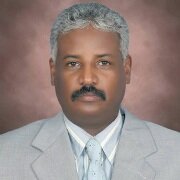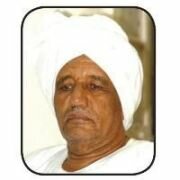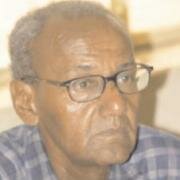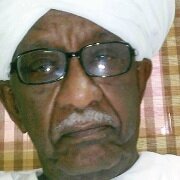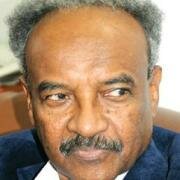In my childhood, I remember a yellow taxi stopping near the door of my house on a condolence visit
. “That is your uncle. He weeps in memory of your father, my mother said.” She added, "Youssef is kind and compassionate”, wiping some sad tears. The taxi moved, leaving with its trail on the dusty street a gleam of a Scandinavian snow that melted in joy of reunion and warmth of nostalgia. Few and brief were those happiest of times in which I came across my uncle-Youssef Alhajj. Once, he appeared on Sudan T.V talking about challenges that face immigrants or expatriates in Europe, especially the Muslim community. I didn’t know what his work was, but a business card presented him to me as a cultural official in Scandinavian Waqf, or religious endowment. Some of friends once told me he came among delegates from Denmark visiting Sudan in the wake of cartoons thought to be insulting to the prophet Muhammad peace be upon him. On the first of January this year, having been reassured of my grandmother's health, I met him at home, where he welcomed me with open arms and a smile that bore much contentment, a sense of being at peace with himself, and youthful zeal and optimism. My aunt Arafat sat somewhere close to him. She served me a hot cup of tea during an informal discussion in which our views converged and diverged. On this occasion, Youssef Alhajj wasn't wearing his hat. Some people think it makes him resemble a Somali or Pakistani man. It is unjust to judge others according to their look or dress. As Martin Luther King Jr said in 1963, “I have a dream that my 4 little children one day shall live in a nation where they will not be judged by the colour of their skin, but the content of their characters" When shall this day come to Sudan? It upsets me to see that some Eastern Sudanese natives are alienated, particularly those who are from Beja ethnicity. Youssef Alhajj is very humble, frank, outspoken, devout, pious and caring. He was obviously impressed with Gaffar Khider referring to him as handicapped, yet his long room serves as a classroom for his students. Gaffar Khider is physically imapired, but he is able to work as politician and teacher. I agree with Mr. Youssef Alhajj that disability doesn't preclude one from being successful and useful to his family and community. I really enjoyed my visit to uncle Youssef Alhajj. My greetings to his family – I wish them Happy New Year.
-
Moonlight: Sudan’s Relationship with Ethiopia Witnesses DevelopmentNext >
